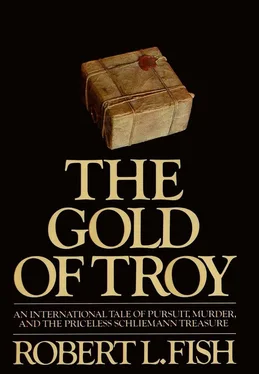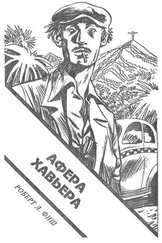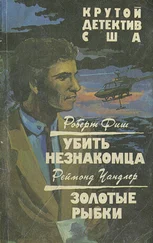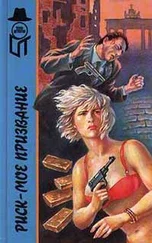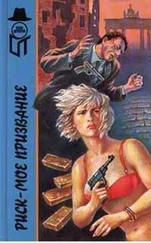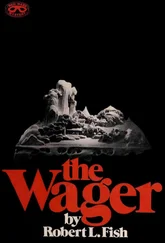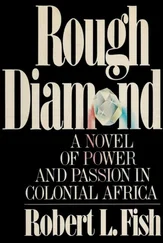“Good enough.”
Bob Keller wet his lips and took the plunge. “At my place? I’m a pretty good chef—”
Ruth McVeigh looked at him and inwardly sighed. It had been a very long time, and Robert Keller was a very attractive man, but she knew he was not the one. Keller recognized the signs and also sighed, but aloud.
“Ah, well,” he said, and smiled ruefully. “The restaurant of your choice, then. Seven o’clock?”
Washington, D.C. — May
As the chairman of the board of the Metropolitan Museum had so correctly stated, there had been, indeed, speculation in the press regarding the mysterious auction of the Schliemann treasure, to the point where it caught the attention of the government. A meeting to discuss some of the possible aspects of the matter was therefore arranged between Frank Mayberry of the State Department, and Thomas Wilson of the CIA. The meeting took place in Wilson’s office in Langley, and Mayberry led off the discussion. He was a tall, thin man, impeccably dressed in dark blue, who spoke softly and slowly, but effectively.
“I assume, Tom,” he said, “that you’ve been reading about this Schliemann treasure and what the newspapers are pleased to call the ‘Auction of the Ages’? Or is it the ‘Sale of the Century’? Plus the speculations about this meeting that is scheduled for next month in London?”
“It would be rather difficult to miss,” Wilson said dryly, and shrugged. He was a gray-haired, stocky man in his late fifties. “What’s State’s interest in it?”
“There are several angles that interest us,” Mayberry said slowly. “For one thing, our United Nations desk is interested in the possibility that there may be some discussion, some attempt, to overturn the UNESCO ruling regarding the ownership of national archaeological treasures. That could open up a tremendous can of worms—”
“And,” Wilson said, with a faint smile, “I imagine your United Nations desk will decide on what position to take once they know who stands to gain most from any change in the rules?”
Mayberry laughed delightedly. It transformed his normally stern-looking face into the gleeful gamin expression of a small boy getting away with something.
“I should certainly hope so.” His laughter faded, his usual almost lugubrious expression returned. “But there is a far more serious problem with the auction of this collection — or at least a potential problem, I suppose I should say.” He paused and frowned at his companion. “Tom, do you honestly believe the Schliemann treasure to be in Russia?”
Wilson seemed surprised at the question. “Yes. There is every indication it is.”
“Why do you say that? You’ll undoubtedly tell me something I already know, but I’d like to hear, anyway.”
“Of course. Well,” Wilson said, leaning back and twisting a paper clip as he spoke, “the OSS investigated after the war, and I was part of that investigation. I was young then, I know, but not so young I didn’t know what was going on. There was supposed to be an agreement between the Allied powers that all art treasures found would be turned over impartially to an Allied Art Treasure Commission for disposition when the war was finally over—” He paused, smiling.
Mayberry frowned. “What’s the smile for?”
“It’s because it’s doubtful if any of the Allies carried out the provisions of the agreement one hundred percent — too many officers and enlisted men thought they knew a good, or anyway, a valuable souvenir when they saw one—” His smile faded. “But I should have to say, in general, that the other Allies kept their part of the bargain better than the Russians. The Schliemann treasure, for example, was hidden in a bunker under the Berlin zoo; the Russians took the city, including the zoo, and the treasure hasn’t been seen or heard of since. Also, when the city was divided up into East and West zones, the part of the city where the zoo was located — it was in the Tiergarten, a park area — ended up in the West Zone, and a search for the treasure was made. It was gone. I know. I was one of those who looked.”
“You never made representations to the Russians?”
Wilson smiled wryly.
“Of course we did. They said they didn’t know what we were talking about. Treasure? What treasure? If there had been any treasure it would have been turned over to the Allied Art Commission; that was the agreement between the powers, wasn’t it? They had turned over other finds, hadn’t they?”
“Had they?”
“Well — yes, as a matter of fact. But they didn’t turn this one over, and that’s a fact!” He frowned and tossed the twisted paper clip aside. “It’s hard to believe the troops stationed in the bunker before the British moved in there divided the treasure as souvenirs and not one piece has surfaced since. The only conclusion we were able to come to at the time — and nothing has changed since — is that the treasure went to Russia. And is still there.”
“Then,” Mayberry asked, leaning forward a bit, “you think this auction is being conducted by the Russian government?”
Wilson shook his head, tapping his fingers restlessly on his desk.
“That’s the problem! Why would they sell it? A collection far more valuable, just for having it, than any intrinsic value it might have? And if they were going to sell it, why just now? I’m sure,” he went on, smiling faintly, “that they don’t need fifteen or twenty million dollars to balance their budget. They’re probably like us — fifteen or twenty billion wouldn’t do the trick.”
“Precisely,” Mayberry said seriously. “And that is our interest in the matter. Why are they selling it? And why just now? After having it for well over thirty years?”
“And those questions bother you?”
“Of course they bother us. Don’t they bother you?”
“Not particularly,” Wilson said, and thought a moment. “Unless—”
“Unless what?”
“I suppose the stealing of art treasures isn’t unknown, even in Russia,” Wilson said slowly. “Suppose they had the treasure and recently some enterprising thief simply walked in, packed it up, carried it quietly out of Russia — because if it’s in private hands I’m sure it’s not in the country, not the way packages and letters have been scattered about — and is now offering it for sale.”
“What then?”
“Then I’m sure we would be interested,” Wilson said. “ Very interested. If Soviet security can be so easily breached — not just by someone stealing what I’m sure was a well-guarded treasure, but by managing to get it out of the country and then blatantly offer it for sale without the Soviet KGB being able to trace the man or his loot — then I should say we would be extremely interested. It would certainly say something about their security arrangements that would definitely be in our interest to know.”
Mayberry nodded. “Agreed. Then, between us, we seem to have an interest. You’ll do something about it?”
Wilson sighed. “I suppose we’ll have to. But at least it should be interesting.” He came to his feet, holding out his hand. “We’ll be in touch, Frank.”
And when his visitor had left, Tom Wilson went back to his chair and reached for his telephone, asking to be connected with Personnel.
“Vic?” he said into the telephone. “Someone who knows something about archaeology, and preferably someone who is familiar with the Schliemann collection. Sure, I suppose a stringer would be all right for this one. What? I’ll spell it for you, although I would have thought you were sick of seeing it in the papers by now. It’s S — what? S as in Sherlock, C as in Conan Doyle, H as in Holmes, L as in Lestrade—” Both men were members of the Baker Street Irregulars.
Читать дальше
